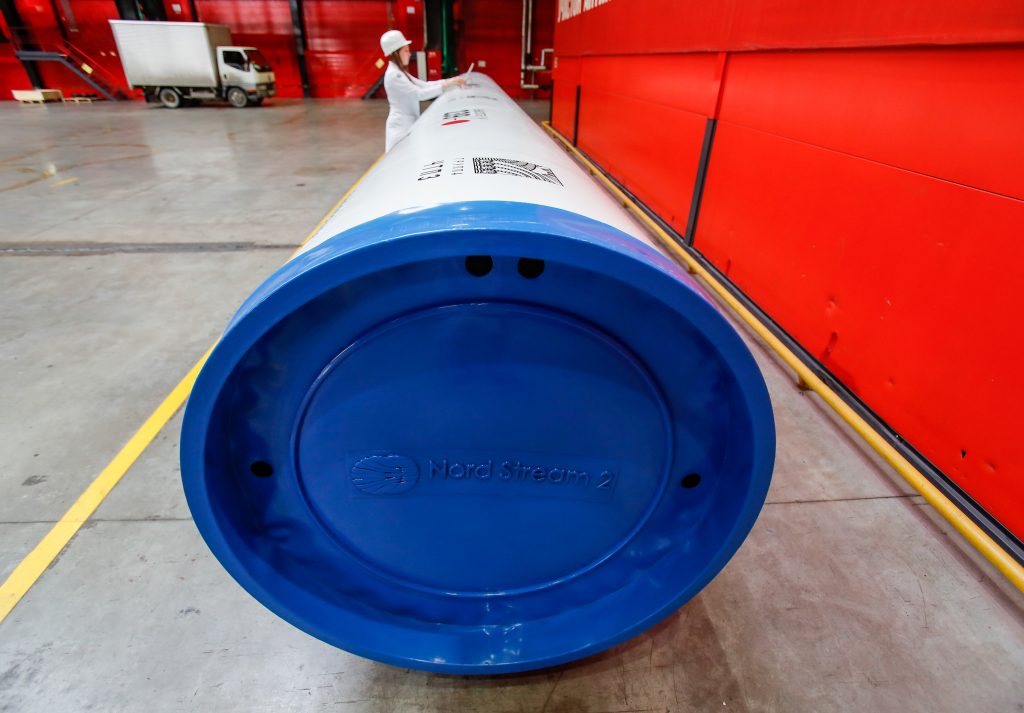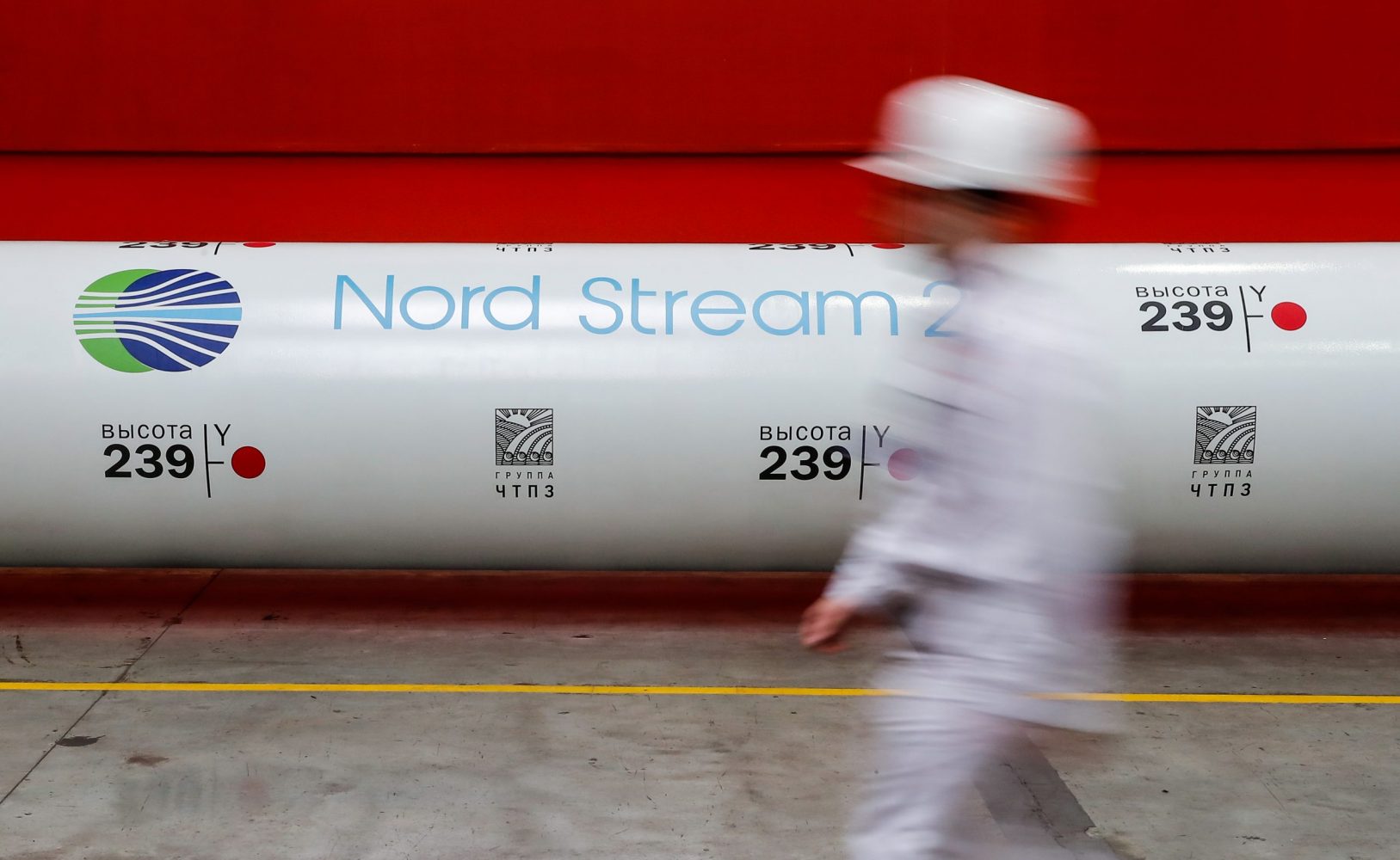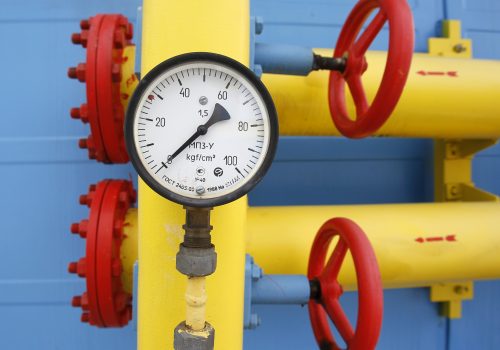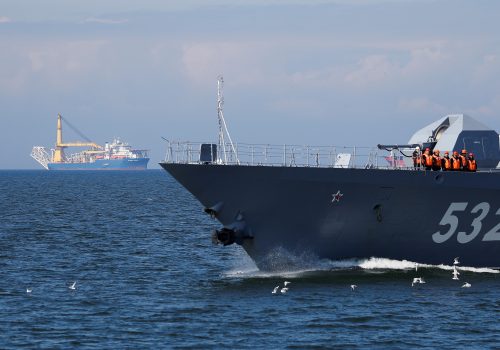Berlin has slammed American plans to strengthen US sanctions in a bid to permanently prevent construction of Russia’s Nord Stream 2 gas pipeline. German critics argue that a new round of US sanctions would infringe on European security and sovereignty. In reality, the opposite is true. If completed, Russia’s pipeline project promises to undermine rather than strengthen Europe’s energy independence, while leaving the continent increasingly vulnerable to the Kremlin.
The German Foreign Ministry stated recently that “new sanctions would constitute a serious interference in European energy security and EU sovereignty.” Similar objections were made after the initial round of sanctions was imposed in December 2019, effectively halting construction of the Kremlin pipeline just 100 miles short of completion.
Since then, however, the actions of Russian energy sector giant Gazprom and statements by Russian President Vladimir Putin in defiance of the sanctions have convinced US Senator Ted Cruz, who spearheaded the original sanctions, of the need to revamp and upgrade existing measures in order to insure the pipeline is never finished.
The proposed new US legislation “makes clear those involved with vessels installing the pipeline will face crippling and immediate sanctions,” said Cruz. His co-sponsor, Democratic Senator Jeanne Shaheen, added that the pipeline threatens Ukraine and Europe’s energy independence and “gives Russia an opening to exploit our allies.”
Berlin’s sanctions backlash has been initiated by German politicians and energy companies that back Nord Stream 2, but most European Union members actually oppose the pipeline project. In 2018, a majority in the EU parliament called for work on Nord Stream 2 to be stopped. This was ignored by Berlin and Moscow.
Stay updated
As the world watches the Russian invasion of Ukraine unfold, UkraineAlert delivers the best Atlantic Council expert insight and analysis on Ukraine twice a week directly to your inbox.
German claims that the pipeline will boost energy security are incorrect. The goal of energy security can only be met if deliveries are safely secured, supplies are sufficient and guaranteed, and diversification is in place to prevent disruptions, shortages, or price gouging. Nord Stream 2 impedes the attainment of any of these objectives. It does not bring any new gas to Europe but simply re-routes Russian gas that currently reaches EU markets via Ukraine’s gas transit system.
Critics of the pipeline say Nord Stream 2 is part of Putin’s two-pronged attack on Europe’s energy security in combination with the existing Nord Stream 1 pipeline. If both pipelines become fully operational, they will have the capacity to provide the majority of Russian gas to Europe through a single choke point. This will give the Kremlin huge leverage.
Increased energy dependence on Russia presents obvious dangers for European security and sovereignty. Many fear that this increased leverage would also lead to the next step in Putin’s scheme. Following the completion of Nord Stream 2, Russia could then move to protect its energy infrastructure under the Baltic Sea by deploying naval vessels throughout the route. This would create a flash point, pitting NATO against Russia, with European energy supplies held hostage.
In this scenario, Nord Stream 2 would serve as the pretext for Russia to extend its military reach significantly. Moscow has recently used a major infrastructure undertaking for similar purposes in the Azov Sea and Black Sea. In late 2018, Russian engineers finished building a massive bridge linking mainland Russia to occupied Crimea. The Kremlin then strengthened its naval presence in the surrounding waters, allowing Moscow to hamper the passage of Ukrainian shipping. Since then, Russian forces have begun routinely delaying and otherwise impeding maritime traffic headed for Ukraine’s Azov Sea ports. In November 2018, three Ukrainian Navy ships along with 24 sailors were seized in a major maritime incident.
While Russian naval power in the Baltic Sea and greater Kremlin control over European energy supplies both represent significant challenges, the completion of the Nord Stream 2 pipeline also poses another major, albeit indirect, security threat. If the pipeline becomes fully operational, Russia will no longer be dependent on Ukraine’s gas transit system for the delivery of energy supplies to EU markets. This would remove one of the key constraints currently preventing Moscow from launching a full-scale military campaign against Ukraine.
The Kremlin’s hybrid invasion of Ukraine began in 2014 and remains ongoing. Up until now, it has been limited in scope, with comparatively small numbers of conventional Russian forces operating alongside mercenaries and local proxies under Russian command. For the past six years, the Ukrainian military has managed to contain this incursion, with the Russian presence limited to the Crimean peninsula and a relatively small region close to the country’s southeastern border.
If Russia chose to deploy the full force of its overwhelming military might against Ukraine, there is little doubt that the entire country would soon be engulfed in conflict. This would put a stop to any further deliveries of Russian gas via Ukraine to EU markets. So far, Russia’s reliance on Ukraine’s transit system has helped restrain Moscow, but the completion of Nord Stream 2 would remove this obstacle. Needless to say, the repercussions of a major Russian offensive in Ukraine would be felt throughout Europe for years to come.
Eurasia Center events

If Germany is genuinely interested in defending European energy sovereignty and security, the most logical strategy would be to enhance the energy diversification efforts currently underway in Poland, Lithuania, and Denmark, and boost the flows of Norwegian, American and Middle Eastern supplies to the EU.
Another policy to consider would be to allow shale drilling to tap the massive supplies of domestic gas available within the European Union. This trove of resources is the reason why Russia has financed groups opposing shale gas drilling throughout Europe.
The Nord Stream 2 pipeline’s geopolitical importance to Putin should not be underestimated. This significance is the main reason why the project must be halted permanently. Despite Berlin’s protests, America is right to intervene with new sanctions that will stop the pipeline and defend European energy security. Blocking Nord Stream 2 will deprive Germany of a lucrative and strategic role as Russia’s key energy partner within the EU, but it is a role they sought in defiance of their neighbors and in pursuit of their own narrow national interests.
Diane Francis is a senior fellow at the Atlantic Council’s Eurasia Center, Editor at Large with the National Post in Canada, a Distinguished Professor at Ryerson University’s Ted Rogers School of Management, and author of ten books.
Further reading
The views expressed in UkraineAlert are solely those of the authors and do not necessarily reflect the views of the Atlantic Council, its staff, or its supporters.

The Eurasia Center’s mission is to enhance transatlantic cooperation in promoting stability, democratic values and prosperity in Eurasia, from Eastern Europe and Turkey in the West to the Caucasus, Russia and Central Asia in the East.
Follow us on social media
and support our work
Image: The Nord Stream 2 pipeline project logo seen at Chelyabinsk Pipe Rolling Plant in Russia. February 26, 2020. (REUTERS/Maxim Shemetov)




